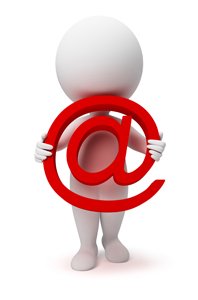The business plan for every startup should include a strategy for capturing email addresses sooner rather than later.

Despite the rising use of texting and all of the grumbling about spam, email marketing done well remains a powerful tool. In terms of converting prospects into buyers, email has a higher conversion rate than search engines and social media. Significantly higher.
According to a report recently released by the Ecommerce Quarterly, conversion rates for email campaigns are 3.19%.
This compares with a 1.95% conversion rate for sites found through search engines and a 0.71% conversion rate for social media.
In other words, even with all the hype in recent years about social media, old-fashioned email is the real workhorse of online traffic conversion.
But it takes time to put all the elements in place for successful email campaigns. And the first element is an email list which serves your purposes.
For an email list to be viable as a marketing tool, it must meet three requirements.
- The list must be large enough for conversion percentages to work in your favor. At a 3.19% conversion rate, an email list of 100 names will not bring you much business. That's why you want to start building your email list from the very first day of your startup. It's going to be a while before your email list is extensive enough to be effective in leading to sales.
- The names on the list must be people who have a genuine interest in what you offer. This makes it vital to build your own email list. There are scores of companies online who will lease you an email list to use. But you have no idea how many people on these lists are prospects for your product. When you build your email list around customers and others who have expressed interest in what you sell, then you are creating an email list that will serve you well.
- The people on your email list must have a high level of trust in you. Since trust builds over time, start periodic emails long before your email list is long enough to be an effective sales tool. Begin building trust with the names already on your list, even while the list is limited to only a few names.
These early mailings to a limited list should not aim at making sales. Rather, your goal is to develop credibility. This means that these emails should be designed around practical, helpful information which the recipients will find valuable. Keep the email concise and crisply worded. Your goal is to condition your recipients to welcome your email when it appears in their inbox.
Starting periodic emails early in your startup also lets you practice the art of writing great email content. Most people underestimate how much time it takes to put together a carefully-crafted, truly professional email. Don't wait until vital sales are dependent on your email campaigns before honing your email marketing skills.
